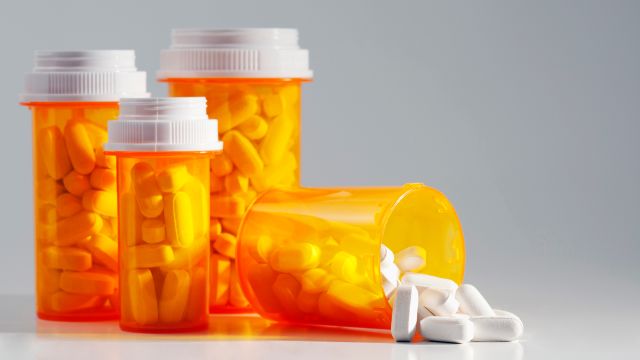Recent years have given rise to a treatment revolution for the more than 1.4 million Americans who live with inflammatory bowel disease (IBD), which includes ulcerative colitis and Crohn's disease. "Now, more than ever before, we can control these diseases, and we have options that really work," says David Rubin, MD, chief gastroenterologist at the University of Chicago Medicine and co-director of its Digestive Diseases Center.
The goal of treatment is to cut down on inflammation in order to stop your symptoms (known as remission), prevent flares and improve your quality of life. Your treatment plan is unique to your symptoms and disease, but most people with IBD need some prescription medication to keep the disease in check. These common drugs come in various formulations, including oral, topical, rectal, intravenous (IV) and injection.
To get your IBD under control, talk with your doctor about these colitis and Crohn's disease medications to see which option might be best for you.
Aminosalicylates
These anti-inflammatory drugs (such as sulfasalazine, mesalamine, olsalazine and balsalazide) are often used to treat mild to moderate ulcerative colitis, and sometimes Crohn's disease. They're also called 5-ASA drugs because they contain 5-aminosalicylic acid. But they aren't the same thing as ASA, more commonly known as aspirin, which can actually worsen IBD. 5-ASA drugs take about two weeks to stop bleeding symptoms and about six weeks to achieve remission. They can be used both during active disease and as maintenance therapy to prevent flares.
Corticosteroids
These fast-acting anti-inflammatory drugs (including prednisone, methylprednisolone, hydrocortisone and budesonide) work by suppressing the immune system. Most people feel better within a few days, but corticosteroids aren't a long-term solution. They can help you through a flare or jumpstart relief while you're waiting for slower-acting therapies to kick in. But they should be used only at the lowest dose for the shortest time, if at all. "Corticosteroids carry serious side effects, including a high risk of infections. The goal of good treatment is to avoid steroid use," says Dr. Rubin.
Immunomodulators
These drugs (including methotrexate, azothioprine, 6-mercaptopurine, cyclosporine A and tacrolimus) reduce inflammation by quieting an overactive immune system. They're a good standby choice when 5-ASA, corticosteroids and antibiotics don't work, or they can be used in combination with corticosteroids or biologics. They can take several weeks or up to six months to work and are intended to control IBD symptoms over the long term.
Antibiotics
Antibiotics (such as metronidazole, ciprofloxacin and rifaximin) are mainly used to treat infections and sometimes flares. While you might read that antibiotics can be used as long-term therapy to control your symptoms, Rubin says that's not usually recommended.
Biologics
This newest class of IBD drugs is a relatively safe, effective option for people with moderate to severe disease. In the past, biologics were recommended only after other therapies had failed, but now doctors recommend them earlier on to get the best response, says Rubin. The drugs (including adalimumab, infliximab, natalizumab, certolizumab pegol, golimumab and vedolizumab) contain engineered proteins that target specific parts of the immune system without dampening it down. The two types of biologic drugs—anti-TNF (tumor necrosis factor) inhibitors and selective adhesion molecule (SAM) inhibitors—work on different targets.
Drugstore Options
Over-the-counter (OTC) medications may be used occasionally to boost symptom relief. These include pain relievers, antidiarrheal medications and laxatives.
For occasional pain relief for your Crohn's disease or colitis, try acetaminophen (Tylenol). Avoid other pain relievers (such as ibuprofen, aspirin or naproxen), which can damage the bowel wall or hinder its ability to heal, explains Rubin. And while it's okay to take loperamide (Imodium) for diarrhea sometimes, maybe before a social event, it's not wise to make it a habit. In fact, try not to make a habit of any OTC meds. "We don't want patients relying on over-the-counter treatments to manage their disease," says Rubin. These options don't address the inflammation or damage, and they can mask your symptoms, meaning that your IBD doesn't improve and may actually get worse.





